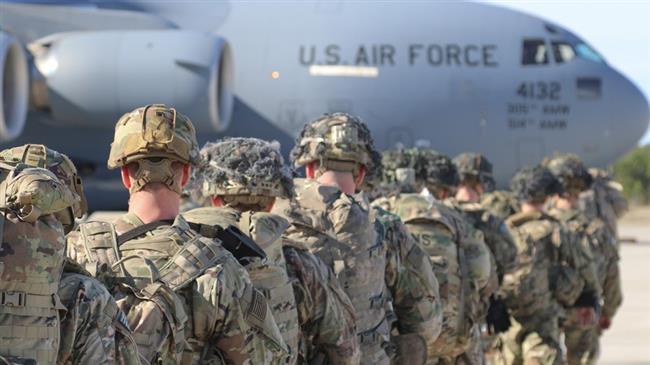The assassination of Iranian Lieutenant General Qassem Soleiman in Iraq by US forces will likely lead to the expulsion of American troops on Iraqi soil and strengthen Iran’s allies in the country, according to Western analysts.

Soleimani, the commander of the Quds Force of Iran’s Islamic Revolution Guards Corps (IRGC), and Abu Mahdi al-Muhandis, the second-in-command of Iraq’s Popular Mobilization Units (PMU), were killed in US airstrikes in the Iraqi capital Baghdad early on Friday.
The Pentagon confirmed the strike, saying it came "at the direction" of President Donald Trump.
Iraq’s Prime MinisterAdel Abdul-Mahdi condemned the US assassination, calling it an attack on his nation’s sovereignty.
Iraq’s government will come under mounting pressure to expel the 5,200 American troops stationed in the country following the attack, The Associated Press said in a report, citing international experts.
That would push Iraq closer to Iran, alongside Syria and Lebanon, the AP said in its analysis.
Restricting or expelling US troops from Iraq is a likely immediate impact option, said Renad Mansour, a research fellow at the London-based international affairs think tank Chatham House.
"I think it would be hard for any Iraqi government official making a claim to keep American troops after this," Mansour told the AP..
The US has ordered all citizens to leave Iraq and closed its embassy in Baghdad follwing the strike.
"There will be for sure a reaction from Iran’s side and the axis of resistance, but the question is where, when and how," said Ibrahim Bayram, an analyst with Lebanon’s daily An-Nahar. "I think the Iranians are precise and know how to direct the hit."
US legal experts say Soleimani assassination violated international law
The assassination of Soleimani in Iraq violated American and international laws, according to US legal experts and a senior UN rights investigator.
The Trump administration on Friday sought to justify its killing as an act of self-defense, using baseless claims to deflect accusations that it violated international law.
But some US legal experts argued Trump lacked the legal authority to kill Soleimani on Iraqi soil without the permission of Iraq’s government, and said the attack was unlawful under international and US law.
Oona Hathaway, an international law expert and law professor at Yale University, said the available facts "do not seem to support" the assertion that the strike was an act of self-defense, and concluded it was "legally tenuous under both domestic and international law."
The UN special rapporteur on extrajudicial executions, Agnes Callamard, said the US assassination was outside the context of active hostilities.
"The targeted killings of Qassem Soleiman and Abu Mahdi Al-Muhandis are most likely unlawful and violate international human rights law: Outside the context of active hostilities, the use of drones or other means for targeted killing is almost never likely to be legal," she wrote on Twitter.
US Democratic lawmakers and presidential candidates on Friday condemned Trump for ordering the air strike, saying the president’s decision was reckless and could lead the US to another war in the Middle East.
Soleimani had survived several assassination attempts against him by Western, Israeli and Arab agencies over the past years. In November 2018, The New York Times revealed a March 2017 meeting in the Saudi capital of Riyadh to assassinate Iranian officials, namely Soleimani.
LINK: https://www.ansarpress.com/english/12459
TAGS:






























 online news tv
online news tv




